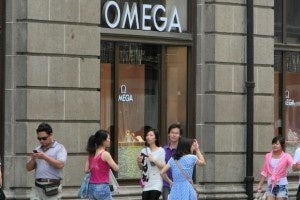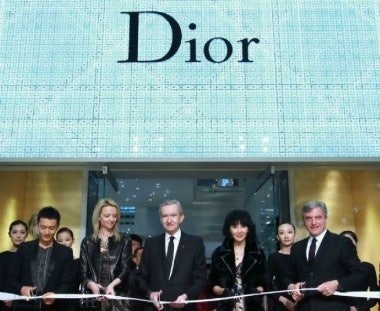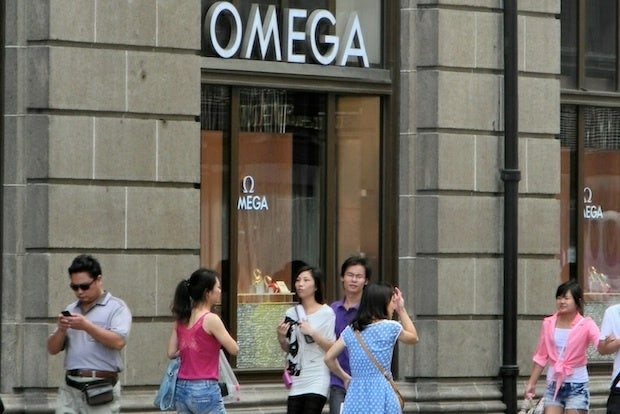Richemont Recently Started Own "Retail Academy" In Shanghai To Improve Standards#

If there's one major complaint we hear time and time again from Chinese luxury consumers shopping at home -- aside from the country's exorbitant import and consumption taxes -- it's about the uneven and relatively low level of customer service at high-end boutiques. Now that outbound Chinese tourist-shoppers have swooped in to buoy the luxury market in Europe, spending an average of 11,000 euros on shopping per trip, according to Global Blue, European luxury retailers have moved quickly to cater to this important demographic. Along with making the usual adjustments, like hiring Mandarin-speaking staff and increasing Chinese-language signage, some brands have focused more intently on their "VIP" service for big-spending Chinese travelers and opened new points of sale aimed squarely at their shopping habits.
Yet back in China, despite the construction of new and ever more lavish flagship stores, luxury retail staff haven't quite perfected this level of bending over backwards for their customers. And this, along with high prices, is causing grumbles among domestic shoppers. Pampered in Europe and North America, often slighted at home, a recent survey by the Beijing-based World Luxury Association recently found that Chinese luxury shoppers consider poor and uneven customer service their biggest pet peeve. Surprisingly, the brands whose level of customer service is complained about the most in the survey are actually some of the largest in the country, with Prada, Chanel and Louis Vuitton staff singled out as the worst performers.
According Ernst & Young, luxury consumption in China amounted to only US$2 billion in 2004. Last year, consumption rose around 25 percent, reaching over $15.6 billion. Though this year's growth rate is expected to slow down somewhat, China is still on track to become the world's largest luxury market by 2015. But it's this speed of change in the market -- and the speed of brand expansion -- that has been arguably the key factor leading to inconsistent customer service. Quite simply, there's been no time to bring standards up to international levels. A historical and cultural bias towards the service industry, and "revolving door" turnover in the industry, too, continues to impact the motivation for staff members to improve their customer service skills and complicates matters for managers.

As the WLA survey notes, one of the biggest complaints among Chinese luxury shoppers is the gap between after-sales service in Europe and in China. With the after-sales service infrastructure in China weak and strained due to rapid brand expansion, customer complaints are generally slowly, or inadequately, resolved. According to the survey results, after-sales complaints in China are on average more than 65 percent higher in China than in Europe.
As the Chinese business site Afinance writes this week, many blame a chronic talent shortage for the relatively poor level of service in China. As a reporter from the Yangcheng Evening News told the site, "Mainland China lags behind the service levels of Hong Kong and Singapore because there's a dearth of talent. Early last year, one top international brand launched in Guangzhou and was offering an annual salary in the hundreds of thousands [of yuan] to find an experienced manager to take control, but it took them six months to find an appropriate candidate."
Some are more hopeful that the after-sales and general customer service standards will improve in China over time as the industry matures. As Guangdong Chamber of Commerce executive chairman Huang Wenjie (黄文杰) told Afinance, the fact that China is not currently a "country of origin for luxury goods" means after-sales service can't be done locally as it can in Europe or the US. But, as Huang added, "I believe that, with the luxury tariff adjustment and changes in luxury brand development in China, the gap in the quality of service in China will gradually get closer to Europe."
Rather than waiting around for the country to improve on its own, some luxury brands and groups are taking matters into their own hands. As Jing Daily wrote this March, recently the luxury giant Richemont opened its own "retail academy" in Shanghai, educating staff and managers with a curriculum of professional skills and sales techniques taught by luxury industry experts and guest lecturers.
